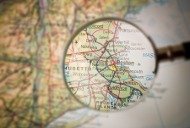National regulation of activities by international corporations
What can be done when international corporations support human rights violations and are implicated in wars through their business activities—and nobody punishes them for that? Can they be brought to account by the courts in their home country for crimes committed abroad? Can investors in this corporation demand to be informed about this? These and other questions emerge particularly in civil war countries where international corporations are doing business, such as in the DR Congo.
Between 2002 and 2004, United Nations Groups of Experts have shown in their reports that international corporations directly or indirectly prolonged war and conflict as they provided income to the elites and thus continued to fuel conflicts and human rights violations. Public "naming and shaming" of these economic actors was intended to make them change their practices. As a result, some important buyers of metals originating in the DR Congo, such as the German company H.C. Starck, stopped their orders from that country but was not held accountable for previous actions.
The UN Group of Experts had also called for more transparency in the mining sector of the DRC and for sanctions for corporations that were directly involved in the country’s war economy. But they were not heard. It is true that the named companies withdrew, but they were not charged, and new international corporate groups filled the gap without showing improved standards.
Law courts in companies’ respective home countries could also take action and hold them responsible. Up to now, though, governments of both industrial and threshold countries in which profitable international corporations are registered, have hardly taken such action. For this reason, the UK-based non-governmental organization Global Witness brought an action against the UK government because it had failed to prosecute the wrongdoings of British companies in the DR Congo.
A current case in which a Western company is investigated and could be prosecuted in its home country is that of Lundin Oil (today Petroleum). In 2010, Swedish prosecutors opened a preliminary investigation into the oil company’s activities in Sudan because it was possibly complicit in war crimes and human rights abuses during the Sudanese civil war (1985 to 2002). A report by the NGO European Coalition on Oil in Sudan (ECOS) said oil exploration by Lundin Oil, and other firms, set off a battle for control of a disputed region in Sudan which led to thousands of deaths and the forced displacement of local populations. Lundin Oil explored for oil in these areas between 1997 and 2003.
US law governs due diligence of companies
To prevent companies from contributing to conflicts through their activities, the United States introduced a new type of regulation in July 2010 which may be exemplary. Indeed, the Dodd-Frank-Act that places regulation of the financial industry in the hands of the government contains clear rules: All companies that are traded on the US-American stock exchange must prove that they do not purchase or process any conflict minerals from the DRC. They also have to report how they make sure that they do not use any conflict minerals.
A number of steps must be followed when reporting: First, companies are required to determine whether they actually use natural resources that fall under that category or not. In the second step, they have to prove whether the resources used originate in the DRC or its neighbouring countries. If this is the case, companies have to show that in mining and trading with those resources, they do not support any activities of armed groups. This process is called "due diligence".
The US Securities and Exchange Commission demands that these reports be published so that those wishing to buy shares can see whether they co-finance wars and violent conflict. Potential "conflict minerals" are the metals coltan, tungsten, tin and gold whose production in the Eastern Congo is in part controlled by armed groups. With the income from the sale of conflict minerals, the leaders purchase weapons, pay their fighters and enrich themselves (see the example of the DRC… ).
Many industrial sectors around the globe are affected by this new US law. These metals, for instance, are used in the production of consumer goods in the automotive-, high technology-, mining-, jewellery- and aerospace sector. The Dodd-Frank-Act, therefore, ascertains that not only companies that directly produce and process mineral resources have to perform due diligence but that companies, such as Dell, Nokia or Ford have to publish the origin of the resources they use.
The Dodd-Frank-Act also contributes to transparency in the natural resource sector. as it contains far-reaching regulations for disclosing information on cash flows from mining companies to governments. Companies are obliged to disclose all corporate taxes, license fees or extraction taxes. This is to provide transparency about the amount of income the government receives from the mining sector and, ultimately, serves to counter corruption.
This regulation has been developed further than other transparency initiatives, such as EITI (Extractive Industries Transparency Initiative) that has to rely on voluntary information provided by companies and the government and that often does not disclose cash flows from individual companies.
The Dodd-Frank-Act is, therefore, a good example for how national legislation can achieve far-reaching regulations for companies worldwide.
Sources and further information:
- Ernst & Young (2011): Conflict Minerals. Dodd-Frank Section 1502 and proposed SEC rule.
- Feldt, Heidi, et al. (2011): Offenlegungspflichten von Rohstoffkonzernen im Dodd-Frank Act, Hrsg: Misereor, Global Policy Forum, Brot für die Welt, Hintergrundinformation April 2011. (German)
- Lauster, Gitta, Mildner, Stormy-Annika und Wiebke Wodni (2010): Transparenz im Rohstoffhandel. US-Finanzgesetz soll Handel mit Konfliktressourcen eindämmen, SWP-Aktuell 76, November 2010. (German)





